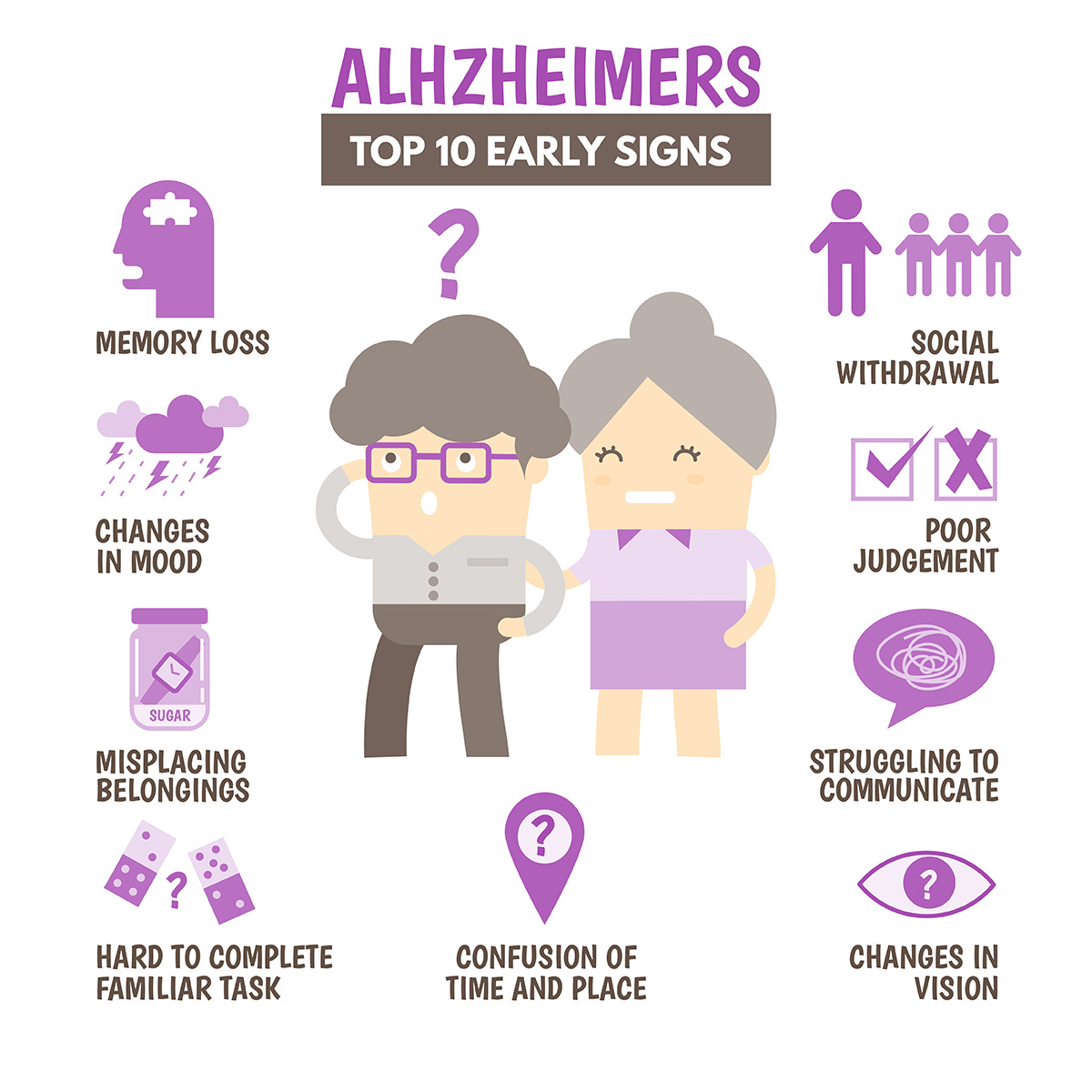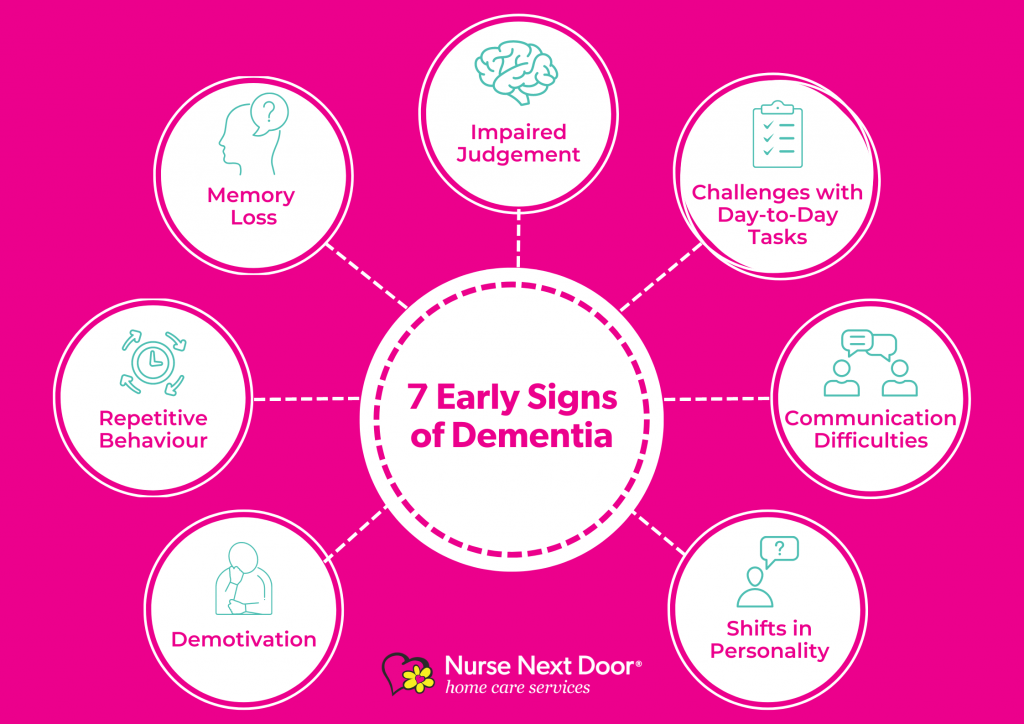5 Essential Facts You Should Know About Frontotemporal Dementia
5 Essential Facts You Should Know About Frontotemporal Dementia
Blog Article
Comprehending the Impact of Mental Deterioration on Every Day Life and Caregiving
Dementia influences day-to-day live in extensive methods, impacting not simply those identified but additionally their caretakers. As cognitive decline proceeds, you might notice changes in communication and routine that obstacle both celebrations. Understanding these changes is essential for preserving self-respect and interaction. Just how do you adapt your caregiving approaches to support a person traversing this complex trip? The answers could amaze you as we discover the nuances of this experience.
The Phases of Dementia and Their Results on Life
As you browse the trip of dementia, comprehending its phases can substantially affect just how you take care of day-to-day live. Dementia commonly progresses through three primary stages: early, middle, and late. In the beginning, you could see periodic memory gaps or problem discovering the ideal words. This can lead to stress, however acknowledging these indications early aids you adjust your regular and look for assistance.
Throughout the center phase, you'll experience a lot more recognizable cognitive decrease. Daily jobs could come to be tough, and keeping your freedom might need modifications. Using suggestions and streamlining your setting can assist.
In the late stage, individuals often need considerable aid with day-to-day tasks. Planning for care becomes important, focusing on comfort and lifestyle. By recognizing these phases, you're much better geared up to react proactively, guaranteeing you or your enjoyed one can browse the challenges with self-respect and poise.

Adjustments in Communication and Social Interaction
How do changes in communication affect your everyday communications as mental deterioration advances? As dementia advancements, you could see that basic conversations end up being challenging. Words may escape you, or you might battle to find the best expressions. This can bring about irritation for both you and your liked ones. Nonverbal hints, like motions or faces, become increasingly important.
You might discover it simpler to connect through these ways rather than depending only on spoken language. Paying attention abilities can additionally change; you could locate it more difficult to bear in mind or comply with discussions what was just claimed (Vascular Dementia). This can lead to misunderstandings or feelings of seclusion
Urging patience and developing a helpful atmosphere can aid. Involving in tasks that promote connection, like songs or art, can boost social interactions. Bear in mind, keeping relationships is still feasible; it's nearly adjusting to new means of connecting.
Effect On Daily Routines and Activities
While maneuvering day-to-day regimens, you'll likely observe that tasks you once finished easily come to be much more challenging as dementia advances. Basic tasks like food preparation, dressing, or perhaps bathing may require more effort and time. You might locate yourself forgetting action in familiar regimens or battling to recall where you put things. This can bring about irritation not just for you, but likewise for those around you.
Planning your day can really feel frustrating, making it harder to adhere to a schedule. You might need suggestions for appointments or to take medicines. Adapting your atmosphere can help; as an example, labeling products or utilizing lists can streamline jobs. Involving in repetitive, structured tasks can additionally provide convenience and a sense of achievement. Keep in mind, it's all right to request assistance. Surrounding yourself with supportive close friends or family members can make taking care of these changes a bit easier.
Behavioral and emotional Difficulties
Steering via everyday regimens can produce not just useful challenges, yet likewise psychological and behavior ones. You may notice adjustments in mood, such as raised stress and anxiety or stress, which can come from complication or problem in finishing tasks. As you browse these moments, it is crucial to recognize that your liked one might express their sensations via habits like agitation or withdrawal.
These emotional feedbacks can be unpredictable and might arise without warning, leaving you both feeling overwhelmed. You could find that familiar atmospheres or regimens can help in reducing anxiousness, but keeping patience comes to be significant. It is crucial to confirm their feelings, also if you do not totally understand them.
The Function of Caregivers in Sustaining People With Mental Deterioration
As a caregiver, you play a necessary duty in offering psychological assistance for individuals with dementia. Establishing everyday treatment regimens can develop a feeling of stability and comfort, helping to relieve their stress and anxiety. By recognizing their demands and making use of reliable methods, you can substantially boost their quality of life.
Emotional Support Techniques
When taking care of somebody with mental deterioration, recognizing the psychological landscape is important for offering effective assistance. You'll typically locate that persistence and compassion go a lengthy method. Verify their sensations; if they express confusion or disappointment, acknowledge it without disregarding their emotions. Basic motions, like holding their hand or preserving eye get in touch with, can develop a feeling of protection. Attempt to involve in activities that they enjoy, as this can trigger pleasure and link. Remember to interact plainly and gradually, using a calm tone. Urge expression through music or art, which can work as a powerful outlet. Inevitably, don't neglect to take care of your own psychological needs; seeking assistance on your own can enhance your ability to care for them.
Daily Treatment Routines
Establishing everyday care regimens is crucial for giving stability and convenience to people with dementia, as these routines can help in reducing complication and stress and anxiety. You can begin by detailing a regular schedule for meals, tasks, and rest. This predictability assists your enjoyed one feel more safe and involved.
Incorporate familiar jobs, like folding washing or watering plants, which can evoke positive memories and cultivate a sense of achievement. Usage visual cues, such as schedules or lists, to assist them via the day.
Be versatile, though; adjust routines as needed based upon their state of mind or power levels. Fall Risk. Keep in mind, your perseverance and understanding are vital in navigating their altering demands, guaranteeing they really feel supported and valued throughout their day-to-day live
Developing a Safe and Comfortable Living Setting
Creating a comfy and secure living setting is essential for people with dementia. You'll wish to make home safety modifications that decrease dangers and guarantee knowledge to useful content offer a feeling of convenience. By concentrating on these elements, you can help produce a space that sustains both security and health.
Home Safety And Security Modifications
As you navigate the obstacles of dementia, making home safety alterations can considerably improve comfort and protection. Start by removing tripping dangers like carpets and mess, guaranteeing pathways are clear. Install grab bars in shower rooms and non-slip floor coverings in the shower to stop falls. Think about making use of brighter lighting and night lights to enhance exposure, particularly during nighttime. Label important areas, such as the restroom and kitchen area, with clear indicators to aid with alignment. Safeguard any sharp items or toxic materials out of reach. Furthermore, assess your home's locks and alarm systems to validate they're user-friendly and give assurance. These modifications not just promote safety and security however likewise urge freedom, permitting your loved one to really feel more comfortable in their atmosphere.
Convenience and Experience
After making sure a safe environment with essential alterations, cultivating convenience and familiarity is important for individuals with dementia. Beginning by individualizing their space. Use acquainted colors, decors, and photographs that evoke pleased memories. A favorite covering or chair can give a complacency. Preserve a regular regular to help them really feel based and minimize anxiety. Easy, acquainted meals can also produce a calming atmosphere. Maintain paths clear and clutter-free to prevent complication. Include soft lights, as brilliant lights can be disorienting. Think about adding calming fragrances, like lavender, to promote leisure. Engaging in acquainted tasks, such as listening to music or horticulture, can boost their feeling of belonging, making their living environment a true haven.
Methods for Effective Caregiving and Assistance
While navigating the challenges of mental deterioration care can feel frustrating, applying efficient techniques can greatly boost both the caretaker's and the client's everyday experience. Begin by see this site establishing a regimen; predictability helps in reducing anxiety for both you and your enjoyed one. Use clear, basic communication-- brief sentences and direct questions can stop confusion.

Do not fail to remember to look after on your own; timetable breaks and get in touch with support system. Sharing experiences with others in similar scenarios can supply valuable understandings and psychological relief.
Lastly, remain client and adaptable. Mental deterioration can bring unpredictable modifications, so adjusting your technique is important. By using these methods, you can cultivate a more positive atmosphere that benefits both you and your loved one.
Regularly Asked Questions

What Are the Various Sorts Of Mental Deterioration?
You'll locate a number of kinds of dementia, consisting of Alzheimer's, vascular dementia, Lewy body dementia, and frontotemporal mental deterioration. Each type influences memory and cognitive function in a different way, so comprehending the distinctions is vital for appropriate medical diagnosis and care.
Just How Can I Aid A Person With Early-Stage Dementia?
You can help a person with early-stage mental deterioration by being client, providing assistance, and encouraging them to take part in tasks they delight in. Keeping routines regular and keeping open interaction can also make a considerable distinction in their every day life.
Are There Financial Resources Available for Mental Deterioration Care?
Yes, there are monetary sources available for mental deterioration care. You can explore federal government support programs, nonprofit companies, and insurance choices. It's likewise smart to seek advice from regional firms for particular resources customized to your situation.
What Lawful Considerations Should Caregivers Recognize?
As a caretaker, you ought to consider power of attorney, medical care proxies, and guardianship regulations. It's crucial to understand the lawful rights and obligations you hold, ensuring your liked one receives appropriate care and defense.
Just How Can I Manage Caretaker Stress And Anxiety?
You can deal with caregiver stress and anxiety by prioritizing self-care, looking for support from pals or teams, establishing practical expectations, taking breaks, and exercising leisure techniques. Bear in mind, your their explanation health matters equally as high as the person you're looking after.
Understanding the Impact of Mental Deterioration on Daily Life and Caregiving.
As you navigate the trip of dementia, recognizing its phases can substantially influence just how you take care of day-to-day life.While steering day-to-day routines, you'll likely notice that tasks you as soon as finished effortlessly become extra difficult as mental deterioration progresses.Establishing day-to-day care regimens is vital for providing security and convenience to people with mental deterioration, as these routines can assist lower complication and anxiousness.While navigating the challenges of mental deterioration treatment can really feel overwhelming, executing efficient methods can significantly improve both the caretaker's and the person's everyday experience.
Report this page